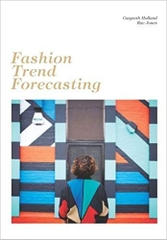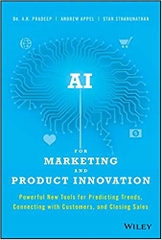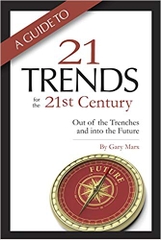-
-
-
Tổng tiền thanh toán:
-
-
Thông tin
-
Tìm sách theo yêu cầu
Drawing from the horizons of science, today's leading thinkers reveal the hidden threats nobody is talking about—and expose the false fears everyone else is distracted by.
What should we be worried about? That is the question John Brockman, publisher of Edge.org ("The world's smartest website"—The Guardian), posed to the planet's most influential minds. He asked them to disclose something that, for scientific reasons, worries them—particularly scenarios that aren't on the popular radar yet. Encompassing neuroscience, economics, philosophy, physics, psychology, biology, and more—here are 150 ideas that will revolutionize your understanding of the world.
Steven Pinker uncovers the real risk factors for war * Mihaly Csikszentmihalyi peers into the coming virtual abyss * Nobel laureate Frank Wilczek laments our squandered opportunities to prevent global catastrophe * Seth Lloyd calculates the threat of a financial black hole * Alison Gopnik on the loss of childhood * Nassim Nicholas Taleb explains why firefighters understand risk far better than economic "experts" * Matt Ridley on the alarming re-emergence of superstition * Daniel C. Dennett and george dyson ponder the impact of a major breakdown of the Internet * Jennifer Jacquet fears human-induced damage to the planet due to "the Anthropocebo Effect" * Douglas Rushkoff fears humanity is losing its soul * Nicholas Carr on the "patience deficit" * Tim O'Reilly foresees a coming new Dark Age * Scott Atran on the homogenization of human experience * Sherry Turkle explores what's lost when kids are constantly connected * Kevin Kelly outlines the looming "underpopulation bomb" * Helen Fisher on the fate of men * Lawrence Krauss dreads what we don't know about the universe * Susan Blackmore on the loss of manual skills * Kate Jeffery on the death of death * plus J. Craig Venter, Daniel Goleman, Virginia Heffernan, Sam Harris, Brian Eno, Martin Rees, and more
Product Details
- Paperback: 528 pages
- Publisher: Harper Perennial (February 11, 2014)
- Language: English
- ISBN-10: 006229623X
- ISBN-13: 978-0062296238
- Product Dimensions: 7.9 x 5.2 x 1 inches
- Shipping Weight: 14.4 ounces (View shipping rates and policies)
- Average Customer Review: 4.4 out of 5 stars See all reviews (18 customer reviews)
- Amazon Best Sellers Rank: #8,652 in Books (See Top 100 in Books)
- #8 in Books > Textbooks > Social Sciences > Psychology > Cognitive Psychology
- #23 in Books > Medical Books > Psychology > Cognitive
- #47 in Books > Science & Math > History & Philosophy
Editorial Reviews
From Booklist
*Starred Review* Each year, Edge founder Brockman and “Edge stalwarts” mark the anniversary of the speculative online science salon by posing a far-reaching question as the catalyst for a multidisciplinary essay collection. Brockman introduces this year’s substantial and engrossing anthology, What Should We Be Worried About?, by noting, “Nothing can stop us from worrying, but science can teach us how to worry better, and when to stop worrying.” The array of subjects 150 leading thinkers and scientists identify as worrisome is vast and varied, while the outlooks expressed in their pithy thought-pieces are provocative and enlightening. Psychologist Steven Pinker identifies hidden threats to peace. Cosmologist and astrophysicist Martin Rees shares his concern about climate change. Philosopher Daniel C. Dennett and science historian George Dyson ponder the risky vulnerability of the Internet. Biologist Seiran Sumner shudders over the dangers of synthetic biology. Neuroscientist Sarah-Jayne Blakemore considers “how our rapidly changing world is shaping the developing teenage brain.” Theoretical physicist Lisa Randall is one of many who fret that there won’t be future funding for major long-term research projects. Water resources, viruses, low science literacy, and our failure to achieve global cooperation are all addressed with striking clarity. By taking this bold approach to significant quandaries, Brockman and the Edge contributors offer fresh and invaluable perspectives on crucial aspects of our lives. --Donna Seaman
Review
“Compelling. . . . Brockman offers an impressive array of ideas from a diverse group that’s sure to make readers think.” (Publishers Weekly)
“From a cohort of highly influential people ... you will be surprised, you will learn a lot, and indeed, you will have a higher quality of things to worry about.” (Kirkus Reviews)
“Edge.org has become an epicenter of bleeding-edge insight across science, technology and beyond, hosting conversations with some of our era’s greatest thinkers” (Atlantic.com)
“Substantial and engrossing. . . . Brockman and the Edge contributors offer fresh and invaluable perspectives on crucial aspects of our lives.” (Booklist (starred review))
“Reads like an atlas of fear.” (New York Times)
“This collection helps us see the myriad possible concerns laid out before us, articulating the various elements of fear that we need to fear.” (Washington Post)
“An interesting collection of food for thought.” (Iron Mountain Daily News)
“From a cohort of highly influential people ... you will be surprised, you will learn a lot, and indeed, you will have a higher quality of things to worry about.” (Kirkus Reviews)
“Edge.org has become an epicenter of bleeding-edge insight across science, technology and beyond, hosting conversations with some of our era’s greatest thinkers” (Atlantic.com)
“Substantial and engrossing. . . . Brockman and the Edge contributors offer fresh and invaluable perspectives on crucial aspects of our lives.” (Booklist (starred review))
“Reads like an atlas of fear.” (New York Times)
“This collection helps us see the myriad possible concerns laid out before us, articulating the various elements of fear that we need to fear.” (Washington Post)
“An interesting collection of food for thought.” (Iron Mountain Daily News)
Most Helpful Customer Reviews
41 of 43 people found the following review helpfulBy Padman on February 11, 2014
Format: Paperback
Comment Was this review helpful to you? YesNoThe latest iteration of the Edge Question comes is something of a loaded question. You can't answer "What should we worry about?" until you've first answered the question, "Should we be worried at all?" In this book, the framework lends to speculation on what worry is in the first place, and how it can be used toward our intended aims. As cognitive Scientist Dan Sperber rightly points out, worry isn't the problem, it's how we use it.
One recalls the point made in Morse's Psychonomics: How Modern Science Aims to Conquer the Mind and How the Mind Prevails: People fear plane crashes more than car crashes even though the former are less frequent and less deadly. But it's not irrational as it seems because fear (worry) can be useful in directing energy and effecting change, and that can lead to greater safety.
This collection is something of a crepehanger's dream come true. People who are easily discouraged by big problems will not have a fun time with this book. But, though there is plenty of doom and gloom to take away from this collection of essays, there is plenty of fascinating thought to go with it, and so is well worth the read. And where else can one read arguments from the brightest minds in the world on the same subject? After reading this (and other Edge titles), the reader feels as though he has just mingled with Steven Pinker, Daniel Dennett, Gary Klein, and 150 other brilliant people at a cocktail party.
A word on the publisher: The Edge, the internet salon from which this book springs, is a real jewel in the neo-modernist age.Read more ›
One recalls the point made in Morse's Psychonomics: How Modern Science Aims to Conquer the Mind and How the Mind Prevails: People fear plane crashes more than car crashes even though the former are less frequent and less deadly. But it's not irrational as it seems because fear (worry) can be useful in directing energy and effecting change, and that can lead to greater safety.
This collection is something of a crepehanger's dream come true. People who are easily discouraged by big problems will not have a fun time with this book. But, though there is plenty of doom and gloom to take away from this collection of essays, there is plenty of fascinating thought to go with it, and so is well worth the read. And where else can one read arguments from the brightest minds in the world on the same subject? After reading this (and other Edge titles), the reader feels as though he has just mingled with Steven Pinker, Daniel Dennett, Gary Klein, and 150 other brilliant people at a cocktail party.
A word on the publisher: The Edge, the internet salon from which this book springs, is a real jewel in the neo-modernist age.Read more ›
25 of 26 people found the following review helpfulBy John D. Cofield TOP 500 REVIEWERVINE VOICE on February 24, 2014
Format: Paperback
Comment Was this review helpful to you? YesNoThis entertaining and thoughtful book is a compilation of answers to a question posed by John Brockman of Edge.org to a galaxy of talented people in biology, history, philosophy, neuroscience, and many other fields. I was somewhat perturbed by the subtitle: "Real Scenarios That Keep Scientists Up At Night," but I was so intrigued by the overall premise that I couldn't resist. And I'm so glad I did, because I found nearly every page to be full of challenging and thoughtful analyses of a variety of topics: some obvious ones like the potential for nuclear conflict, and others more obscure (at least in my experience): the faiLure to account for the role of microorganisms in cancers.
There are approximately 150 short chapters, some no more than a page, each comprising an individual contribution from an eminent thinker. Some names were familiar to me: David Christian, Howard Gardner, Nassim Nicholas Taleb; while I hadn't heard of many others like Andrew Lih or Victoria Stodden. I found some segments more illuminating than others: I now have a better understanding of the Singularity for example, but I have to admit much of the sections on theoretical physics were less than crystal clear to me. Anyone who spends much time dealing with the Internet and media will find the chapters on "Is Idiocracy Looming?" and "Worrying About Stupid" highly valuable, though others like "Unmitigated Arrogance" and "Illusions of Understanding and the Loss of Intellectual Humility" were useful counterpoints. It was comforting to read "There is Nothing to Worry About, and There Never Was," "Misplaced Worries," and "What is a Good Life?", especially after reading about "Rats in a Spherical Trap," for example.
I would not recommend trying to read this straight through because there's simply too much to grasp all once. It makes a perfect book to keep close at hand, to read and ponder and skip about in, and to consider it your introduction to some fascinating minds.
There are approximately 150 short chapters, some no more than a page, each comprising an individual contribution from an eminent thinker. Some names were familiar to me: David Christian, Howard Gardner, Nassim Nicholas Taleb; while I hadn't heard of many others like Andrew Lih or Victoria Stodden. I found some segments more illuminating than others: I now have a better understanding of the Singularity for example, but I have to admit much of the sections on theoretical physics were less than crystal clear to me. Anyone who spends much time dealing with the Internet and media will find the chapters on "Is Idiocracy Looming?" and "Worrying About Stupid" highly valuable, though others like "Unmitigated Arrogance" and "Illusions of Understanding and the Loss of Intellectual Humility" were useful counterpoints. It was comforting to read "There is Nothing to Worry About, and There Never Was," "Misplaced Worries," and "What is a Good Life?", especially after reading about "Rats in a Spherical Trap," for example.
I would not recommend trying to read this straight through because there's simply too much to grasp all once. It makes a perfect book to keep close at hand, to read and ponder and skip about in, and to consider it your introduction to some fascinating minds.
13 of 13 people found the following review helpfulBy B. Case TOP 500 REVIEWERVINE VOICE on February 27, 2014
Format: Kindle Edition Verified Purchase
I love these Edge annual question books. This is the second one I’ve purchased. I know I can read them online, but I also know from experience that I will read them more consistently if I have them loaded on a digital reader.
Reading these essays--in bits and pieces now and then--is getting to be a delightful habit. Whenever I have five or ten minutes to kill, I know I can turn to my digital downloaded Edge book. I always keep it loaded (on the device, rather than in the Cloud) for quick access usually using my phone rather than my Kindle device. That way, I know I will never be caught without something brilliant and fascinating to entertain me.
I particularly enjoyed this Edge question: “What should we be worried about?” John Brockman asked the brilliant members of Edge to “Tell us something that worries you (for scientific reasons), but doesn't seem to be on the popular radar yet—and why it should be. Or tell us something that you have stopped worrying about, even if others do, and why it should be taken off the radar.” For me that sounded irresistible. It was the right question to hold my interest.
I’d say about 50% of the essays were delightfully thought-provoking. I can finish one in a few minutes and then sit and think about it…or use it as a conversation piece with the next clever person with whom I find myself conversing. Another 25% of the essays are merely pleasurable, but contain nothing remarkably new or noteworthy. Even so, I enjoy revisiting these ideas as presented by the brilliant minds of Edge…unquestionably some of the brightest and most original minds on the planet. Some of the writings are exceptionally creative; others are witty and clever. And then, of course, there is the 25% that for one reason or another don’t appeal to me at all. I’ve learned to identify those essays quickly and skip them.
In short: these essays are intellectual candy for any inquiring mind.
Reading these essays--in bits and pieces now and then--is getting to be a delightful habit. Whenever I have five or ten minutes to kill, I know I can turn to my digital downloaded Edge book. I always keep it loaded (on the device, rather than in the Cloud) for quick access usually using my phone rather than my Kindle device. That way, I know I will never be caught without something brilliant and fascinating to entertain me.
I particularly enjoyed this Edge question: “What should we be worried about?” John Brockman asked the brilliant members of Edge to “Tell us something that worries you (for scientific reasons), but doesn't seem to be on the popular radar yet—and why it should be. Or tell us something that you have stopped worrying about, even if others do, and why it should be taken off the radar.” For me that sounded irresistible. It was the right question to hold my interest.
I’d say about 50% of the essays were delightfully thought-provoking. I can finish one in a few minutes and then sit and think about it…or use it as a conversation piece with the next clever person with whom I find myself conversing. Another 25% of the essays are merely pleasurable, but contain nothing remarkably new or noteworthy. Even so, I enjoy revisiting these ideas as presented by the brilliant minds of Edge…unquestionably some of the brightest and most original minds on the planet. Some of the writings are exceptionally creative; others are witty and clever. And then, of course, there is the 25% that for one reason or another don’t appeal to me at all. I’ve learned to identify those essays quickly and skip them.
In short: these essays are intellectual candy for any inquiring mind.
XEM THÊM TẠI AMAZON.COM
- Thông tin chi tiết
- Mục lục
- Đọc thử
- Đọc thử
- Đánh giá & bình luận của người mua
- Những cuốn sách cùng chủ đề hoặc có liên quan
Link: http://www.amazon.com/What-Should-Worried-About-Scientists/dp/006229623X/
Tại web chỉ có một phần nhỏ các đầu sách đang có nên nếu cần tìm sách gì các bạn có thể liên hệ trực tiếp với Thư viện qua Mail, Zalo, Fanpage nhé
Đăng ký nhận tin qua email
Hãy đăng ký ngay hôm nay để nhận được những tin tức cập nhật mới nhất về sản phẩm và các chương trình giảm giá, khuyến mại của chúng tôi.












